new posts in all blogs
Viewing: Blog Posts Tagged with: YA Historical Fiction, Most Recent at Top [Help]
Results 26 - 50 of 154
How to use this Page
You are viewing the most recent posts tagged with the words: YA Historical Fiction in the JacketFlap blog reader. What is a tag? Think of a tag as a keyword or category label. Tags can both help you find posts on JacketFlap.com as well as provide an easy way for you to "remember" and classify posts for later recall. Try adding a tag yourself by clicking "Add a tag" below a post's header. Scroll down through the list of Recent Posts in the left column and click on a post title that sounds interesting. You can view all posts from a specific blog by clicking the Blog name in the right column, or you can click a 'More Posts from this Blog' link in any individual post.
I'll come back to book 4 (Greg Van Eekhout's The Boy at the End of the World) soon, honestly - was just too tired last night when I finished to sit at the computer and say anything sensible. It was a keeper though!
 Picture the Dead's (very brief) Goodreads synopsis:
Picture the Dead's (very brief) Goodreads synopsis:
Jennie Lovell's life is the very picture of love and loss. First she is orphaned and forced to live at the mercy of her stingy, indifferent relatives. Then her fiancé falls on the battlefield, leaving her heartbroken and alone. Jennie struggles to pick up the pieces of her shattered life, but is haunted by a mysterious figure that refuses to let her bury the past.
All right, but it neglects to mention that her twin brother has also died (it's the Civil War), and that her fiancé was one of those 'indifferent relatives', and her first cousin. My feelings about this book are mostly that it's very stylishly done - I love the way it's presented, with pages of letters and photographs as if from Jennie's scrapbook - but there isn't terribly much depth. Honestly though, I might have had more time for the story if I hadn't been so annoyed by the stupid, utterly pointless fat-bashing. Jennie's mean and hypocritical aunt is described on page 2 as "a spoiled child, blown up into a monster", and that "blown up" is quickly clarified as meaning fat: same page, her chin "wobbles like aspic". First picture of her, she's fat (shocker) and ugly (ditto). Next but one scene, we have "Her eyes were baleful, her pudgy finger crooked". They get a photograph taken and Jennie says her aunt's "jellied bulk affords her a dignity that eludes her in real life". There are plenty more "fat fingers", "squeezing" of her girth -- all the usual.
But, there's an odd one later on, about two girls who had been Jennie's "friends", when she was engaged to the older son of the family. Their calling cards are pasted onto a page in Jennie's scrapbook, with her writing beside it: "If everyone knew how much Flora gossips and Rosemary eats, they mightn't be so quick to accept a calling card from either sister." Really? These snobs who drop Jennie as soon as she's lost social standing are a huge cliché, and part of that cliché is really the gossiping involved in social calls. But this toss-off, illogical remark is still pretty vicious - Flora's gossiping is a real fault, for all it wouldn't have stopped her visiting with her social set, but eating a lot?
It's a pity that there was this kind of rubbish going on, as the details about the early days of photography are a lot of fun, and seem to have been well researched. Other things were more dubious historically, though I can only say of one of them - "At 18? No." as it's a spoiler.

By:
Becky Laney,
on 5/11/2012
Blog:
Becky's Book Reviews
(
Login to Add to MyJacketFlap)
JacketFlap tags:
war,
Historical Fiction,
adult fiction,
2006,
YA Fiction,
YA Historical Fiction,
World War II,
library book,
Books reviewed in 2012,
Add a tag
The Book Thief. Markus Zusak. 2006. Random House. 560 pages.
First the colors. Then the humans. That's usually how I see things. Or at least, how I try. Here is a small fact: you are going to die. I am in all truthfulness attempting to be cheerful about this whole topic, though most people find themselves hindered in believing me, no matter my protestations. Please, trust me. I most definitely can be cheerful. I can be amiable. Agreeable. Affable. And that's only the A's. Just don't ask me to be nice. Nice has nothing to do with me. The Book Thief leaves me speechless. If humans leave Death, the narrator, feeling haunted, I can say the same of the narrator. Could a book have a better narrator? I doubt it. There is something so perfectly-perfectly-perfect about The Book Thief. It is beautiful and brilliant; absorbing and compelling. It goes ugly places, to be sure, but the language, the style, just can't be beat. I mean this is a novel that wows and amazes. The characters are so real, so vivid. I mean these characters are ve...moreThe Book Thief leaves me speechless. If humans leave Death, the narrator, feeling haunted, I can say the same of the narrator. Could a book have a better narrator? I doubt it. There is something so perfectly-perfectly-perfect about The Book Thief. It is beautiful and brilliant; absorbing and compelling. It goes ugly places, to be sure, but the language, the style, just can't be beat. I mean this is a novel that wows and amazes. The characters are so real, so vivid. I mean these characters are very real, very human, very flawed, but the connection is so intense. I mean how can you read Liesel Meminger's story and not be moved? How can you not care for Liesel, for her new Papa and Mama, for Rudy, for Max? It would probably be hard to pick a favorite character in this one. Would it be Death who tells the story so beautifully, so achingly, so straight-forwardly? Would it be Liesel, the girl-turned-woman, whom you just can't help loving? Her story is so heartbreaking. She is weak-and-strong. She's vulnerable and spunky. I mean she's got fight to her, fight in her. And there's something about her that you just can't ignore. But she's been hurt, she's carrying pain and loss. There's so much about her that I couldn't even begin to put into words. Would it be Hans Hubermann? It may just be. The way he tenderly loves Liesel, the way he's strong and gentle with her. So very, very understanding. How she becomes his world. How he does everything possible to be a true father to her, to heal her hurts, to piece her heart back together. There is something so very practical and down-to-earth about him, yet something so sensitive too. I mean Hans Hubermann and his accordion won't soon be forgotten by anyone who reads this novel. And then there's Max, the hidden Jew in the basement. I love Max for himself, it's true, but I love Max for what he brings out in Hans and Liesel. I love Max's role in the novel because of how he is able to connect with Liesel, how he is able to connect with this family. His story is powerful, the "books" he writes for Liesel are incredibly compelling, but, this isn't his story. He's a big part of the story, to be sure, because of the way Liesel takes him into her heart. But. This story is all about Liesel. As it perhaps should be. The Book
The Wild Book. Margarita Engle. 2012. Harcourt. 144 pages.
I really do love Margarita Engle's verse novels set in Cuba. They almost always impress me. I love her poetry. I love the emotion behind the poems. The
way she tells a story. The Wild Book is no exception. Set in Cuba in the early twentieth century, the heroine is based on Engle's grandmother. (I believe the novel is set around 1912?)
Josefa, or "Fefa", is our eleven year old, word-blind heroine. Her inability to read isn't from lack of focus or desire. More than anything, Fefa wants to be able to read and write. She's dyslexic at a time when no one really understood what that meant. Her mother gives her a present, a blank book, and tells her to practice, to take things slow, slow, slow. To keep trying. To not give up. And that is just what our heroine does. She writes--as slowly and carefully as she can--about her life. And it's an interesting time to be sure....since Cuba has won its independence from Spain and is being occupied by the United States...a time with many dangers and risks.
GuessingI memorize all the littleguess-me riddlesin my schoolbook:
A bird has a little whitetreasure chestthat everyone knowshow to openbut no one can close.An egg!
Why does an unlucky shrimpswim backwards?To return to a time before he lost his luck!
I dream up new riddlesand write them all downin my wild book.
My slow handwritingwith its careful swirlsand loopshas almost grown beautiful.
Am I patient?What has changed?
When I write riddles,the pen in my handfeels mysterious.
I feel as powerfulas a girl in a fairy tale,a brave girl who climbsdangerous towersand sips waterfrom magic wells.
Is this how it feelsto be smart? (46-47)Read The Wild Book
- If you're a fan of Margarita Engle
- If you're a fan of verse novels
- If you're looking for historical fiction set in Cuba
- If you're looking for books with dyslexic characters
© 2012 Becky Laney of
Becky's Book Reviews
The Berlin Boxing Club. Robert Sharenow. 2011. HarperCollins. 416 pages.
As Herr Boch finished the last lecture of the school year, I sketched one final caricature of him into the margins of my notebook. For someone who does not like sports novels--who claims to not like sports novels--I sure did love Robert Sharenow's The Berlin Boxing Club. Perhaps I just require HEART in my sports novels?
The Berlin Boxing Club is set in Berlin during the mid-to-late 1930s. The hero of the novel is a young Jewish boy, Karl Stern. When readers first meet Karl, he does not even identify himself as being Jewish. It's not that he's trying to hide the fact from his peers, acting one way at home, another way in public. He just does not see himself as being ethnically or religiously Jewish. His sister and father look Jewish--though Karl still argues that they don't particularly act stereotypically Jewish--so it's a shock to him that he's forced to wear this Jewish identity. And being Jewish in Nazi Germany, well, it's nothing anyone wants to be. The new laws being so strict, so harsh. (Karl ends up being kicked out of school, getting beat up by bullies, etc. And that's just the start of it, but I won't go much beyond that in this review.)
Karl also does NOT see himself as athletic. He does NOT see himself as a fighter. But when his father's friend, Max Schmeling, offers to train him, offers him a membership at the Berlin Boxing Club, well, Karl finds himself wanting/needing this. His father would have preferred that Max pay money for the painting he bought at his gallery, but this does seem to be a once-in-a-lifetime opportunity. So Karl has to do a great deal of training to get himself in shape before he even steps into the boxing club, Max gave him a list of exercises, a training regimen. Will Karl have the stamina and motivation to continue, to live up to his potential....
So The Berlin Boxing Club is about so much more than boxing. It is even much more than just a novel about "the fights" between Joe Louis and Max Schmeling. It is a book about fighting to survive in desperate times. It is about how difficult it was to be Jewish in Nazi Germany. It's a thought-provoking read, very emotional, very compelling!
Read The Berlin Boxing Club
- If you're interested in reading about this time period, Nazi Germany in the 1930s
- If you're interested in reading Jewish fiction
- If you're looking for a companion read to The Book Thief
- If you're looking for a sports book with heart and soul
© 2012 Becky Laney of
Becky's Book Reviews
Black Duck. Janet Taylor Lisle. 2006. Penguin. 252 pages.
A rumrunner had lived in town, one of the notorious outlaws who smuggled liquor during the days of Prohibition, that was the rumor. David Peterson heard he might still be around. Where? No one knew exactly. It was all so long ago. Well, who was he? This was equally vague. Someone said to ask at the general store across from the church. It would be a miracle if the man was still alive, David thought. He'd be over eighty. If he were anywhere, he'd probably be in a nursing home by now. But it turned out he wasn't. He still lived in town. Ruben Hart was his name. Yesterday, I reviewed
Bootleg: Murder, Moonshine, and the Lawless Years by Karen Blumenthal. Reading that fascinating nonfiction book on prohibition led me to indulge in a reread. Black Duck is a historical novel that I just LOVE!!! It is a novel with a framework structure.
Our young hero, David, wants to be a reporter or journalist. (He definitely does not want to limit himself to working for his father's landscaping/yard business.) He needs a good story, a BIG story. So he follows a lead and meets Ruben Hart. He's hoping to find out more about the Black Duck, a ship that was almost legendary--at least locally--during prohibition. It was one of many, many ships that carried bootleg liquor, landing and unloading secretly, of course. Throughout the novel there are newspapers clippings telling the fate of the Black Duck, of the three crew members who died that night it was apprehended by the Coast Guard. There were so many--especially when it first happened--that thought it was murder, that it was a set-up. That someone informed the Coast Guard telling them exactly, exactly where to find the Black Duck. That the Coast Guard shot without any warning, shot at an unarmed ship--or unarmed crew. David definitely feels there is a story to be told, to be uncovered. But will Ruben Hart share it with him?
Most of the novel is set in 1929 in a coastal Rhode Island town. Readers meet Ruben and his best friend Jeddy McKenzie on the day they discover a dead man on the beach. A well-dressed man that had been shot in the neck. They also discover a crate...among other things. They do report the discovery to the police--Jeddy's father is the Chief. But the police seem hesitant to investigate the crime. The boys aren't quite sure if this is the deputy's fault (Charlie Pope) or the Chief's fault. Or perhaps there is someone higher up who doesn't want this death, this murder, to become publicly known. The two are told to be quiet, to keep silent about what they saw. But some things can't be hushed up. The day becomes significant--at least in retrospect--because it was the day that Ruben first started keeping secrets from Jeddy, the day that Ruben first started doubting his friend's loyalty to him--to keeping secrets. Ruben starts to believe that Jeddy will report back to his father, to the police. So he chooses to keep what he's learned, what he's observed, to himself.
This is also a time when Ruben starts questioning everything, starts questioning what is right and what is wrong. If bootlegging is providing much-needed money to families, is it really that evil? These aren't criminals. These are hardworking men, of all ages, who have lived in poverty for so long, who have always struggled just to provide basic necessities for their families, so is it really that wrong for these men to help unload these illegal shipments? Isn't there a difference between murdering mobsters and the simple people caught up in this mess?
So Black Duck is the coming-of-age story of Ruben Hart AND it is the coming-of-age story of David Pe
Hattie Big Sky. Kirby Larson. 2006. Random House. 290 pages.
December 19, 1917Arlington, IowaDear Charlie,Miss Simpson starts every day with a reminder to pray for you--and all the other boys who enlisted. Well, I say we should pray for the Kaiser--he's going to need those prayers once he meets you!Oh, how I LOVE Hattie Big Sky. I just love and adore this historical YA novel set, for the most part, in 1918. The heroine, Hattie, has inherited her uncle's claim in Montana. If the claim is to become truly hers, she'll need to prove the claim. She'll need to plant/harvest a certain number of acres, and lay a certain number of fence/fence-posts. Intimidating work to be sure--physically and emotionally demanding work. True, she'll have almost all winter to prepare herself mentally and emotionally for the challenge--time well spent reading up on farming and such--but once spring comes, the work is neverending. Unfortunately, some people do have more time on their hands. Time to spend being too patriotic. Time to spend bullying your German neighbors. And believe me, it gets cruel and ugly and brutal. But Hattie is different from the rest--not that every single person is a hater. She knows that she wouldn't stand a chance of making it on her own without the friendship--deep friendship--with her closest neighbors. Yes, her neighbors are German. But never for a second has she felt they were her enemies, that they should be her enemies.
Read Hattie Big Sky
- If you like or love historical fiction; this one is a must in my opinion!
- If you love pioneer-type stories; yes, this one is set in 1918, but proving a claim and homesteading hadn't changed all that much
- If you like or love coming of age novels; Hattie is a great heroine, and she learns so much about herself during these tough months!
- If you like novels set during World War I
© 2012 Becky Laney of
Becky's Book Reviews
Bud, Not Buddy. Christopher Paul Curtis. 1999. Random House. 245 pages.
Here we go again. We were all standing in line waiting for breakfast when one of the caseworkers came in and tap-tap-tapped down the line. Some novels have me at hello. Bud, Not Buddy wasn't like that--for me. It was a novel that had to grow on me. It was a quiet novel, in a way, that in the end proved most satisfying. Chapter by chapter I came to know Bud Caldwell better, and I started to care about him. By the end, the novel felt just right, so perfectly right. It is easy to see why this one won awards!!!
Bud, Not Buddy is set in the 1930s during the Depression. It is set in Flint, Michigan, for the most part. Though this novel will see Bud setting out on quite a journey. He's an orphan, just eleven, in search of one simple thing: a father, a family, he's never known, never hoped to know. So what led him to begin this journey? Well, he had to run away from his last placement in a foster home. The family had a son who was a few years older, and, this boy was cruel and mean, and his parents were stupid enough to believe their son an angel. Could he have gone back to the Home? Maybe, maybe not. But isn't this ending worth it?!
Read Bud, Not Buddy:
- If you are looking for a historical read with plenty of heart and a good, satisfying ending
- If you are looking for books set during the Depression that are realistic but not depressing
- If you are looking to read a great Newbery winner with memorable characters
© 2012 Becky Laney of
Becky's Book Reviews
Cleopatra Confesses. Carolyn Meyer. 2011. Simon & Schuster. 304 pages.
From the prologue:
My enemy stands at the gates of my city, Alexandria in Egypt. From chapter one:
I gaze out at the sea and remember a summer day in the reign of my father, King Ptolemy XII. In this memory I am ten years old. It is the season of the Inundation, the time of year when the Nile overflows its banks, flooding the fields and renewing them for planting. While Cleopatra Confesses wouldn't be my absolute favorite Carolyn Meyer novel, I can easily say that it was a good book. I found it compelling. True, most readers will know the ultimate fate of Cleopatra. But still, this historical novel for teens focuses on Cleopatra's journey to that event. The novel is divided into sections. We see her as a young child who loves and adores her father. We see her as a young teen who distrusts her older sisters who proclaim themselves queens when their father enters exile. We see her fear for her life, but meet fear with determination, with strength not weakness. We see her happy reunion with her father, we see her share some of the glory with her father, with her brother, as she does become Queen. We see her as she becomes a mature woman who desires love and passion in addition to power. Julius Caesar gets a little attention--a chapter or two. But if you're expecting this to be a love story--though a tragic, slightly unusual love story--between Mark Antony and Cleopatra, you'll be disappointed. Just an epilogue brings readers up to date. I actually was pleased with this. Because the other story has been told again and again and again. But this story that focuses on her early years, on the rivalry between her and her sisters, on her unhappy marriages to her much, much younger brothers, on her early years as Queen, that is the story that is most worth telling. Especially for this audience.
Read Cleopatra Confesses
- If you're a fan of Carolyn Meyer
- If you're a fan of historical fiction, particularly historical fiction set in Egypt
- If you're interested in the Roman Empire
- If you're a fan of Shakespeare (Julius Caesar and Antony and Cleopatra)
- If you're interested in politics and power struggles--particularly within families!
© 2012 Becky Laney of
Becky's Book Reviews
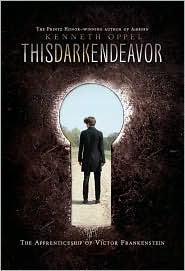 This Dark Endeavour: The Apprenticeship of Victor Frankenstein. Kenneth Oppel. 2011. Simon & Schuster. 304 pages.
This Dark Endeavour: The Apprenticeship of Victor Frankenstein. Kenneth Oppel. 2011. Simon & Schuster. 304 pages.
We found the monster on a rocky ledge high above the lake. For three dark days my brother and I had tracked it through the maze of caves to its lair on the mountain's summit.
What if Victor Frankenstein had a twin? A dying twin desperately in need of a cure. What if Victor Frankenstein's passion for "science" was the result of his desire to save his brother--no matter the cost. Is it that simple? What do you think? This is VICTOR Frankenstein after all!
This is a prequel to Mary Shelley's Frankenstein. Is it perfect? Or should I say a perfect-perfect match to Shelley's original novel? No, I can't say that it is. Perhaps because the original does not take the time to TRULY develop the Frankenstein family. Yes, we get a very, very, very strong idea of who Victor is--or was--but as for his immediate family, do we really get to know them in the original novel? Get to know them in a meaningful way? I don't know that we ever do. Is Elizabeth anything more than a picture or a symbol of a beautiful, innocent woman tragically sacrificed? And his brothers, well, we know their names essentially. Henry Clerval, well, we get a little more--but we get it through the eyes of Victor. And CAN WE REALLY TRUST ANYTHING AT ALL HE SAYS ABOUT ANYONE? (Not that I have opinions.) Anyway, this novel is a chance to meet the characters--or one author's idea of those characters.
Don't expect the details to match Shelley's story. Just don't. But if you can take it for what it is--a good adventure story with plenty of action and suspense--then you may just find yourself enjoying it.
Do I like Oppel's Frankenstein more than Shelley's? I can't say that I did. For even at a young age he seems a bit mad, a bit dark, a bit evil. Not in an oh-so-obvious way perhaps. It's just that his feelings for his brother...and his feelings for Elizabeth...are obviously complex. The way his brother loves, loves, loves Elizabeth, and the way she loves, loves, loves him in return. Well, Victor can't STAND that for a moment.
I am very glad I read this one. I was very curious about it. And I am thrilled to see an adaptation of Frankenstein. I wouldn't say that this one wowed me or that I thought it was the best book ever. But it certainly gave me something to think about. Mainly that Elizabeth was one very strong, very strong-willed, very spunky character. She has faith--it's true--and she's essentially good. But she's a FIGHTER. And she's not afraid to speak her mind. The Elizabeth of this novel cannot easily be reconciled with Shelley's original.
© 2011 Becky Laney of Becky's Book Reviews
Mister Creecher. Chris Priestly. 2011. Bloomsbury. 390 pages.
Billy pulled his clammy coat collar tightly to his throat. It was damp with the fog and felt like the tongue of a dead animal lolling against his neck. His thin body shivered and trembled. He was fifteen but looked eight. A fever sweat glistened on his forehead. His breaths were short; they puffed from his mouth in feeble wisps.When the novel opens, our hero, Billy, is getting ready to rob a corpse. The corpse in question turns out not to be a corpse at all, but a "Mr. Creecher." A dead-looking man of large proportion. He "saves" Billy just moments later when a mean gang of thieves (Billy's also a thief of course) shows up threatening him. But his "savior" wants Billy to do a little work for him. He wants Billy to follow two men about town. A Mr. Frankenstein and a Mr. Clerval. Billy easily agrees to this. And so it begins...an odd friendship of sorts...partly based on convenience and circumstance.
At first Billy barely knows a thing about Creecher. And he doesn't mind not knowing. What little he has heard, what little mumblings (or grumblings) he's heard, he's been able to ignore. And even when the truth--the Creecher's truth--is revealed, Billy has a hard time REALLY believing that such a thing is so, that something like that is even possible. But as the story progresses, Billy hears more and more of the Creecher's tale. At times Billy thinks he talks WAY TOO MUCH. He accuses him of talking like a girl, a woman. Of being too in-touch with his feelings, of loving novels and reading too much. I didn't agree with every little thing Billy said. (I was later very glad I didn't!!!) But. It provided an interesting perspective of viewing Mary Shelley's creation or creature.
'Shut up!' Billy snapped. 'Why do you have to be such a...'
He snarled and kicked a moss-covered branch and sent it tumbling into the darkness. Without the coachlights, the moon provided the only illumination to the scene.
'You see how it is for me,' said Creecher. 'I try to help and--'
'It's always about you, isn't it?' said Billy. 'Oh, poor me--I'm ugly and no one likes me. Boo hoo, boo hoo. Well, life ain't a bowl of cherries for the rest of us neither!'
'But you can live among them...'
Billy fumed for a few moments, unable to express his feelings. The truth was he had never felt part of 'them.' He had never belonged.
'Oh yeah. I can get treated like filth,' he replied. 'I can starve or steal. I can hang. If you want someone to feel sorry for you, you've come to the wrong place.' (191)
The novel is set in the middle of Frankenstein. The creature has requested Frankenstein create a mate for him, and Victor has agreed. The novel ends with them on their way to Scotland.
I liked this one. I really, really liked it. I'm not sure that I absolutely loved it. I'm not sure it will make my favorites list. But I am SO GLAD I read it. I found it a great read. Very quick, very enjoyable. The tone of this one was just right. It was just a great, great read. It definitely made me think!
© 2011 Becky Laney of
Becky's Book Reviews
Wrapped. Jennifer Bradbury. 2011. Simon & Schuster. 320 pages.
"Put the book down, darling," my mother said from her chair beside the mirror. Wrapped is a great read! I wouldn't say it is a perfect read, but it is so much fun. I wouldn't change a thing. It was just a joy to spend time with this book, with these characters. It's a mystery-romance set in Regency England--1815 to be exact.
Our heroine, Agnes Wilkins, is a delight! I just loved her! I loved almost everything about her. True, I solved the mystery before she did, but I'm not holding that against her. For I think, in many ways, she proves her smarts. She just happened to be a little distracted by her new friend Caedmon.
I definitely loved this one and am happy to recommend it!
© 2011 Becky Laney of
Becky's Book Reviews
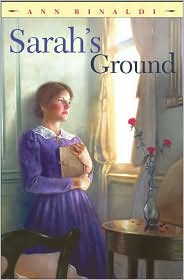 Sarah's Ground. Ann Rinaldi. 2004. Simon & Schuster. 192 pages.
Sarah's Ground. Ann Rinaldi. 2004. Simon & Schuster. 192 pages.
My older sister, Fanny, put me in a closet once when we were children. She, being the elder, had her reasons, I suppose.
Sarah's Ground opens in the spring of 1861. Our heroine, Sarah Tracy, is a young woman with a unique opportunity. Having lied on her application, she's been hired by a preservation association (or society?) to oversee Mount Vernon, George Washington's home. The estate isn't in the best condition, and, it needs some attention, some care, to restore and preserve the legacy of this historic home. Sarah Tracy is the woman for the job. And this novel focuses on the first year of the War Between the States as she fights for Mount Vernon to remain neutral--to remain safe from both armies.
I thought the story was interesting. While I didn't love this one, I was never bored by it. I may not think it the best book ever written about the Civil War, but I did think it worth the read. I learned a few things I didn't know, for example. And so I would recommend it to fans of historical fiction, of the civil war era in particular. As historical fiction, I think it works, as a romance, not so much. So it depends what you're looking for in a book.
© 2011 Becky Laney of Becky's Book Reviews
The Hidden Gallery (The Incorrigible Children of Ashton Place #2) Maryrose Wood. 2011. HarperCollins. 320 pages.
"But the workmen swore the repairs to the house would be finished by now!" It's been a few months since the disastrous Christmas affair when the three Incorrigible children--Alexander, Beowulf, and Cassiopeia--went a little crazy in front of all the guests. But the children have made friends with the squirrel, Nutsawoo, and they've been behaving well enough ever since. They've been themselves, true, confusing words like matador and metaphor. But they've not been awful or dreadful. Still, a little change of scene might be just the thing. For Penelope Lumley, the young but bright governess, has been invited to London by one of her former teachers. And Miss Lumley is eager to go with the children. She didn't necessarily expect Lord and Lady Ashton to want to go to London too. But the more the merrier, right?
So this second book is ALL about their London adventure. Do you think that these three children--supposedly raised by wolves--can go unnoticed in London? You're right. Things do get a little messy. But in the midst of the chaos, Miss Lumley discovers that she needs to be extra careful. For there is someone who wants to hurt the children. But who?! Miss Lumley's former teacher is NO help at all. Just warning Penelope to not ask questions of anyone and to leave well enough alone. But does that really sound like something Penelope can do?
I liked The Hidden Gallery. I didn't love it as much as
the first one, perhaps, but it was a good read, an enjoyable one. Within this one, Penelope makes a new friend, Simon, whom she trusts almost immediately. At times I forget that Penelope is VERY young herself--just fifteen or so? So it was nice to see that she is interested in boys too. That she can think of more than Latin and geography and such.
© 2011 Becky Laney of
Becky's Book Reviews
Small Acts of Amazing Courage. Gloria Whelan. 2011. Simon & Schuster. 224 pages.
How can kindness get you into so much trouble? It started when Mother dropped into sickness and I was left on my own. No, before that, when the war came and Father, a major in the British Indian Army who led a battalion of Gurkha Rifles, went off to the war. The battalion was sent to fight in countries I had never heard of and whose names I couldn't spell.Set in India immediately following World War I, Small Acts of Amazing Courage is the coming-of-age story of our heroine, Rosalind, who grew up with a little too much freedom to be a 'proper' lady. Or at least a proper English lady. Rosalind prefers to spend her time with her best friend, Isha. Isha has picked up English, and Rosalind has picked up Hindi. These two love to go to the bazaar. Rosalind isn't allowed--by her father, at least--to go. And Isha, well, Isha--though the same age as Rosalind, is already a married woman; her husband has a stall at the bazaar. Her mother hasn't been feeling the best, so Rosalind has spent the past year or so making her own rules. When her father returns, he's worried. He fears that he'll never be able to make a proper lady of her if she remains in India. She needs some polishing. She needs decorum. She needs to learn a little discipline and obedience.
But. Her mother pleads for Rosalind to be allowed to stay. But there are a few incidents--you might just call them small acts of amazing courage--that lead her father to make the ultimate decision. His daughter goes. No matter what his wife says. No matter how much his daughter pleads. No, she'll go to England to live with her two aunts. End of story.
Except that isn't the end of the story at all. For Rosalind will go on encouraging small acts of courage right there in England under the nose of her oh-so-bossy aunt. One of her aunts has spent her life being bullied. And with Rosalind's help, freedom may come at last!
Of course, that is only half the story. For Rosalind and Aunt Louise's fight for independence mirrors that of India. Readers learn about Gandhi and his followers who were making a non-violent stand of their own.
Readers might also want to read Padma Venkatraman's
Climbing the Stairs.
© 2011 Becky Laney of
Becky's Book Reviews
Miss Spitfire: Reaching Helen Keller. Sarah Miller. 2007. Simon & Schuster. 240 pages.
"Ticket, please."I wipe at my eyes and thrust the wretched thing at him. I've already had to change trains six times since Boston. On top of that, I have to take this train north to Knoxville to catch yet another train south to Alabama.I love Miss Spitfire. I just LOVE, LOVE, LOVE Miss Spitfire. It's such a feel-good, oh-so-magical, ultimate-comfort read--at least for me. It's a novel about Annie Sullivan and Helen Keller. A novel about a teacher who wouldn't accept failure, who kept persevering, no matter how big the challenge, no matter how big the tantrum, Sullivan was NOT going to be beaten by a child.
Annie Sullivan is a young woman on a mission. Her job? To teach a child--a six year old child--who is blind, deaf, and dumb. It won't be easy. There has only been one successful case in the past to base their hopes and dreams on: Laura Bridgman. But Annie is strong-minded and determined. She'll need every ounce of stubbornness she has if she's going to master the willfulness of Helen. Used to getting her own way, Helen runs wild. And as Annie soon points out, the family expects better behavior from the dogs than they do their young daughter. Helen has never been disciplined a day in her life--at least since an illness left her blind and deaf. This journey from despair to hope, from chaos to communication, is an important one. It is full of emotion--as day by day Annie struggles to teach and love a child who fails to comprehend the meaning of words altogether. Anger. Frustration. Rage. Joy. Happiness. Fear. Hope. Despair. It's all here. Annie and Helen. This is their story.
If you've seen The Miracle Worker, you'll know the basic plot of this one. But it is Sarah Miller's writing that impressed me the most. I loved how she told this story.
After years of being blind myself, I can understand a mind without pictures, but I can hardly comprehend a mind without words. Words, songs, stories--they were the things I craved most before my sight was restored, for words explained the things my eyes couldn't show me. When I was blind, words were as vital as breath. (7)
"I'm not sure I can do this job. Yet a part of me understands Helen better than she does herself. I'm no stranger to frustration, anger, isolation. I wonder, though, how Helen can be content to deprive herself of my affection? The thought of her indifference makes my throat sting, yet I can't help feeling drawn to her. If I could only touch her heart, I know I could reach her mind. But she won't even let me hold her hand." (43)
"It seems nothing I do comes out right. But in my heart I know what's right for Helen: obedience, love, and language. Come what may and hell to pay, I'll find a way to give her all three." (64)
All these words, do they linger in her fingers after her lessons are through? (125)
And for the record, I loved, loved, loved the ending. It was oh-so-magical.
© 2011 Becky Laney of
Becky's Book Reviews
Come Juneteenth. Ann Rinaldi. 2007. Houghton Mifflin Harcourt. 256 pages.
From the prologue:
Last night when the fire burned low, when the last of the sweet potatoes under the logs was just a crisp fragrance left of our supper, long after my brother Gabriel had taken his last swig from the flask in his haversack and wiped his mouth with the back of his hand and turned over in his bedroll on the other side of the fire and grunted his good night, last night I lay awake long and unblinking in the spark-filled distance above me. From chapter one:
I was in the pumpkin patch, counting the ones that were good enough for Old Pepper Apron, our cook, to make into bread.Secrets. Lies. Lives torn apart. Not by the Freedom War, the War Between the States, the Civil War. But by lies told during those years by masters to their slaves. Come Juneteenth is set in Texas in 1865. Texas slaveholders--like our heroine's father--were able to keep Lincoln's Emancipation Proclamation secret. For two years. Out of necessity? Out of greed? Out of fear? Out of hate or anger? Perhaps we'll never know all the reasons. Luli, our heroine, has struggled with this secret. So has her brother, Gabriel, for both care--in VERY different ways--for Sis Goose, a slave woman who is legally a slave--owned by the family's aunt, but someone who has been raised--since she was a baby--as a member of the family. Luli considers her a sister--an older sister. The two have been very close at times. Though growing up has changed
some things. And Gabriel? Well, he's very much in love with Sis Goose. He plans on marrying her and living happily ever after. After, you know, he gets back from fighting the Indians. So when the truth does come out, when the slaves are freed, when the Yankees arrive, well, Sis Goose feels hurt and betrayed and very angry by the family she's loved.
Come Juneteenth is dramatic and intense. The story is told in flashes by Luli. The transitions between past and present can be tricky, but, for the most part, I liked it.
© 2011 Becky Laney of
Becky's Book Reviews
Heart of a Samurai. Margi Preus. 2010. [August 2010] Harry N. Abrams. 320 pages.
Manjiro squinted across the expanse of glittering sea at the line of dark clouds forming on the horizon.Historical fiction set in the 1840s-1850s. Manjiro may have dreamed about one day being a samurai, but, the truth is as a son of a fisherman, his "destiny" was to be a fisherman. Nothing more, nothing less. After a stormy beginning, Manjiro was lucky to be alive. For when he's out and about with a handful of other fisherman--all older, more experienced--their small boat becomes lost at sea. The young men (Manjiro's just fourteen) end up on a desolate rocky island. Their fate seems all too certain--starvation. But at the hand of "barbarians" (American whalers), they find new opportunities.
Unfortunately, these opportunities come at a heavy price. Because Japan's policies towards outsiders, if the men were to ever return they'd likely be killed because they've been "contaminated" by contact with the outside world. Manjiro accepts a special invitation from the Captain of the whaling vessel. He will--after several years aboard ship with the Captain--return with him to America, will become a part of the Captain's own family. He will be the first Japanese man in America. And the experience is something he never could have imagined! But will he ever get the chance to go home? For no matter how "lucky" he may be to have found a new life, a new family, he can't forget the family he left behind. He can't forget that he never told his mother goodbye--that he left without even telling her where he was going--fishing with friends. All these years, she had no way of knowing if her son was dead or alive. He has to find a way back to Japan if he can.
This historical fiction novel is based on a true story. It is historical adventure. Readers learn about his time at sea--on board a few whaling vessels. Readers learn about his time in America--his first experiences with school, with church, with the community. Will he be accepted? Or will be seen as strange? as dangerous?
© 2011 Becky Laney of
Becky's Book Reviews

By:
Becky Laney,
on 1/8/2011
Blog:
Becky's Book Reviews
(
Login to Add to MyJacketFlap)
JacketFlap tags:
family,
war,
YA Fiction,
YA Historical Fiction,
brothers and/or sisters,
dysfunctional families,
Civil War,
Death and Dying,
2010,
Houghton Mifflin Harcourt,
review copy,
Add a tag
The Last Full Measure. Ann Rinaldi. 2010. [November 2010]. Harcourt. 218 pages.
"Where are you going, Tacy?"Set in Gettysburg, Pennsylvania in 1863, The Last Full Measure is Ann Rinaldi's latest historical novel. It stars the Stryker family. Our heroine, Tacy, is fourteen. She has two older brothers and a father in the war. But during these troubling summer months, she's going to mature quickly. She'll have to having witnessed some of the atrocities of war. When the novel opens, Tacy's biggest problem is her brother, David, the brother who was unable to join the army because of his bad leg. He has been put in charge of the family; it is his duty to "protect" his mother and his sister, and to look after their home. The responsibility weighs heavily on him, transforming him into a man Tacy can barely recognize. Who is this bossy brother ordering her about? Who is this man that shouts and yells and threatens? Though, perhaps, Tacy needs someone to tell her no--for her own sake.
As the novel progresses, readers get a glimpse of the war, the battle as it unfolds. Readers see the harshness, the devastation, the madness of war. One might think that the battle itself would provide the climax of this one. That its darkest moments would be in the battle itself. But. That's just the beginning. And Tacy's darkest days come
after the battle.
I found The Last Full Measure a compelling read. I read it in one sitting, in one afternoon. I enjoyed Tacy as a character. I liked her perspective. How she wasn't above questioning the world around her. And perhaps most importantly, how she wasn't perfect.
But it was a difficult read for me. I reached a point where I was like
NO! Are you serious?! Why?! And after that point, it was hard for me to "like" this one. I'm not saying it's not a good book. I'm not saying that it isn't realistic. Or that it isn't well-researched. That it isn't true to the times. But still, it didn't go the way I wanted it to go.
© 2011 Becky Laney of
Becky's Book Reviews
Backtracked. Pedro de Alcantara. 2009. Random House. 272 pages.
By the day I was born, April 3, 1990, I had already lived several lives. But I didn't learn about them until Tuesday, February 28, 2006. This is how it happened. Backtracked is not a perfect novel. But. I enjoyed it for what it was. Tommy Latrella, our hero, isn't perfect and he knows it. He is TIRED of every one in his life comparing him to his older brother, Jimmy. His brother died a hero in 9/11.
Tommy has never felt like a hero. Not once. But. The subway system might just change all that by giving him three chances to be just that: a hero.
His first stop will see Tommy living in the tenements in 1918; the second stop will see Tommy living in Hooverville--before becoming employed by the Mafia--in 1932; the third stop will see Tommy training to fight in a war he's only read about in textbooks: World War II. Tommy does not control the time travel. The portal seems to change each time. In moments of crisis--great crisis--he goes backwards and forwards in time.
Backtracked is set in New York with a focus on Italian immigrants--Italian communities--in four turbulent decades. The novel is a bit uneven, perhaps, but I liked it all the same. Tommy's decisions aren't always the best decisions--and he can be difficult to relate to at times--but I always wanted to know what happened next. I was interested in these stories, these time periods.
© 2011 Becky Laney of
Becky's Book Reviews
Had a pathetic beginning of a post saved, talking a bit about the hound's sufferings over Hallowe'en and starting on the latest historical book discussion, but it was neglected on my desktop while I hung out with Becca, who was here for the weekend, and Younger Daughter, and as I finished Connie Willis' All Clear. The All Clear write-up will have to wait, as I loved it so much I have to do it right, so for now I'll finish off my earlier attempt to bring another glorious recent YA historical to -- no, let's be honest, to rant yet again. With quotes, but as with a few recent entries, no author or title in the post, though details provided if requested.
This one was supposed to be ![[info]](http://l-stat.livejournal.com/img/userinfo.gif?v=1) steepholm's, as it was very readily available locally, but as it somehow hadn't been steeped yet, and as I found it in Bristol airport when my flight was delayed three hours, I figured I'd have to take the hit once more. Not just sharing the "it burns" quotes to spread around the pain, as I think some of them show something I'm seeing fairly often: the superimposing of the author's feelings about religious beliefs on a late 16th century story. (I have just noticed the automatically "got" music, and promise it was got automatically and I had no hand in it whatsoever.)
steepholm's, as it was very readily available locally, but as it somehow hadn't been steeped yet, and as I found it in Bristol airport when my flight was delayed three hours, I figured I'd have to take the hit once more. Not just sharing the "it burns" quotes to spread around the pain, as I think some of them show something I'm seeing fairly often: the superimposing of the author's feelings about religious beliefs on a late 16th century story. (I have just noticed the automatically "got" music, and promise it was got automatically and I had no hand in it whatsoever.)
The book is set in England in 1596 and the protagonist is illegitimate - oddly, something I've encountered twice very recently is a great deal of bullying and abuse of the protag because she's illegitimate. It feels all wrong, and I'm wondering if it's really just a handy-dandy device to get the girl on the outside of the usual YA cool girls' clique? Anyway, once her grandparents died, she and her mother have lived on the outskirts of the village, literally and figuratively. She has a friend who'd been valued in the village as a healer until there'd been a plague and people had turned on her as a witch, whipped up by the parson, of course. (The wise woman escaped and lives in a hut she built in the forest near the village. )
And we get this line: "[Protag] had lost what little faith in God she had had during that time." What? This is surely a totally modern "idea" of an Elizabethan 13-year-old girl's response to a traumatic happening, and is very loosely thrown together with more contemporary mindset statements, like that protag is frightened of witches. And later, she asks the friend, who is in fact a witch, if she and her sister-witch believe in God and then regrets having asked because " to deny God's existence would condemn [them] to Hell". Sigh. But it's all fine and dandy because they reply that they believe in a God and a Goddess. When I read some of the witchey chants, I wasn't at all surprised to find that the only source the author seems to have used is a book on Wicca as a New Age religion. SIGH. This witch's "covey" is very, very New Age, talking about the "sacred task performed by witches for thousands of years, that of preserving the dignity and preciousness of all life", for example. Or when her friend the witch is chased away from her hut again, by ravaging villagers (again, put into their frenzy by the pastor, of course!), there's, "A place of peace and sanctuary had been violated, and Nature was not blind to that." There are also an extraordinary number of witches within 3 or 4 miles of protag's village too, given the low population of the area.
But, one atheist who still worries about her friends going to hell and a lot of very anachronistic witches isn't enough for this book. No, we have *another* character who's shed his silly old belief in God. In ways, this on

By:
Becky Laney,
on 11/4/2010
Blog:
Becky's Book Reviews
(
Login to Add to MyJacketFlap)
JacketFlap tags:
war,
Historical Fiction,
YA Fiction,
slavery,
YA Historical Fiction,
J Historical Fiction,
J Fiction,
2008,
Simon and Schuster,
library book,
Add a tag
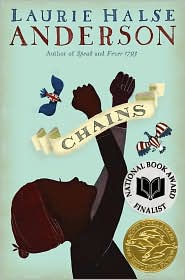 Chains. Laurie Halse Anderson. 2008. Simon & Schuster. 320 pages.
Chains. Laurie Halse Anderson. 2008. Simon & Schuster. 320 pages.
The best time to talk to ghosts is just before the sun comes up. That's when they can hear us true, Momma said. That's when ghosts can answer us. The eastern sky was peach colored, but a handful of lazy stars still blinked in the west. It was almost time.
When the novel opens, Isabel, our heroine, is seeking help from her (dead) mother one last time. But it's to no avail, her mother's ghost does not answer her pleas, can provide no further guidance to her two daughters, Isabel and Ruth.
Their mistress has died. Isabel knows that her mistress freed her and her sister before she died; it's in her will. But her mistress's nephew--Mr. Robert Finch--as her only living relative refuses to believe that consulting a will is even necessary. Naturally, all her aunt's property is his. And since Isabel and Ruth are nothing but property, they are his by right. The fact that there's a will, a lawyer, who could say otherwise? Irrelevant. Mr. Robert sells both girls at the first opportunity. Their buyer? The Locktons of New York. Isabel is even given a new name. One that is "easy" to remember. Sal. But Isabel can never be comfortable wearing a new name, being the property of someone else. Isabel dreams of so much more. She dreams of freedom. What keeps her from acting on impulse? Of running away? Her sister, Ruth. But the actions of a cruel mistress--selling her younger sister--means that Isabel has nothing left to lose. Will Isabel believe the British who are promising freedom to some slaves? Or will Isabel believe the Patriots who claim the same thing--freedom to slaves who help their side.
A nation at war. A young country seeking freedom, justice, liberty. Set in New York City during circa 1776-1777, the story is vibrant and heartbreaking. It's a story rich in detail and emotional and powerful in nature. Isobel's story--her struggles--resonates so deeply that I think this one is a must-read.
I first reviewed Chains in November of 2008. I reread it so I'd be ready for the release of the sequel, Forge.
© Becky Laney of Becky's Book Reviews
Not a contest with prizes, I'm afraid, but just some questions about which I would love opinions, informed, unformed or whatever. I won't name the book concerned in questions 1 & 2, as it's first book and not big-name and I'm obviously not very impressed, though I'll be happy to do so in comments if anyone wants to rush out and get a copy (or avoid it).
1) The year is 1582. The book uses a very uneven mix of cod, er, archaic and modern language, but is obviously for the most part attempting some kind of olde language. (For example, just before the following quote, a character reflects that while she may look as beautiful as a rosebud waiting to be gathered she had already "been plucked and well swived".) And then there's this:
X frowned. "You dragged me out of college to get you married off to advantage and you waste an opportunity like this to impress some rich young lady on a maid without prospects? Y, you need your head examining."
My answer: might come close! Okay, there's obviously a typo, and it's not well expressed anyway, but the combination of bad use of language and complete disaster wrt mindset makes it pretty distinctive.
Just a page or two after this, there's another impressive one though, in which POV character in the scene says he hopes he manage to "sustain the romantic illusion" in a joust - which I knew was totally wrong, though I've now forgotten the year in which "romantic" was first used in that sense that Steepholm supplied. Suffice it to say much, much later than the 1500 or 1600s. Same character also says to himself "the game's afoot" when the jousting starts.
Or - have another: in a discussion about the rich bride this impoverished Earl has to land to repair the family fortunes, he says "I'd prefer her to agree to the match because she wants it, not because others tell her to marry me." His brother chuckles in reply, "That's very enlightened of you."
Any other answers?
As I said behind cut #1, this character has become an earl on his father's death, and the family has been ruined by the time he inherits, by his father's belief in alchemy and support of one (perfectly honest) alchemist. Earl of Dorset, btw, just in case it might be some crap little earldom in -- oh, wild Ireland or something.
It doesn't feel at all right to me, though I'm obviously no expert in the kinds of money one believer could spend on supporting an alchemist. (Just the one, with a dependent daughter, who appears to have received next-to-nothing for her own maintenance. So we're not talking about a *hive* of alchemists with expensive tastes being supported.)
If anything, this feels to me like an attempt to co-opt the very typical situation in Regencies of a head of family gambling away all the money onto an Elizabethan setting. I'm sure it *could* be done, but it still feels more than a bit off. (Also odd that the feckless alchemist father appeared in _Alchemy and Meggy Swann_, done very credibly, and in this, done not so credibly.)
Finally, and mostly arising from reading
The Queen's Daughter, by Susan Coventry, but I didn't get around to asking after the question occurred to me --
I think of this as the territory of teens and young adults of today, though not of course, unknown in oldies like myself. (Not that I'm sure I can do a perfect roll - I can cross my eyes excellently, but I'm not sure there's a proper arc being followed in the eye roll attempts.) Anyway! I was very surprised to see it coming up in
The Queen's Daughter, where it was actually Joan's father, Henry II of England, who rolled his eyes at Joan, which (from memory) she said was more distressing to her than straight chastisement.
I was sure Steepholm would be able to quote me a nice Renaissance line proving that the eye roll has been with us for centuries, but no. So
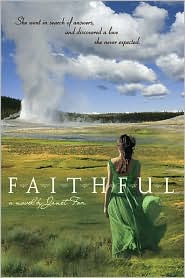
Faithful. Janet Fox. 2010. Penguin. 336 pages.
The trail was too crowded for a hard ride. Too groomed, too manicured. I wished I could fly, could gallop away from my raging confusion, but I couldn't give Ghost my crop and set him off at a canter. I urged him into a fast trot instead and even then I saw it in the faces we passed: the raised eyebrows, the surprise, the disapproval. Disapproval draped over me like a funeral crepe.
Maggie Bennet, our heroine, is miserable. She's miserable in Newport where our story begins. She's miserable on her journey west with her father. She's miserable in Yellowstone where her journey ends. For this "surprise" vacation brings with it devastating news: there will be no going back. For her father is ruined. The money is gone. Their home, their belongings, their horses--all sold. Why is her father ruined? Well, he's not gotten over his wife's scandalous life and death. The truth is neither has Maggie. Both harbor hope that she is alive--somewhere. It is this hopeful little lie that makes Maggie agree to the trip West in the first place. But. Yellowstone doesn't bring Maggie's mother back to her. It does hold a secret or two about her mother's past though...
Maggie is on a journey of self-discovery. As she explores her new surroundings, she begins to contemplate her life in a new way. She considers that perhaps some things are more important than money, than social standing, than having the best of everything. She realizes that maybe happiness can't be bought. Maybe love is better than money.
What lessons can Maggie learn from her mother's past? Can she make peace with her troubled mother? Can she finally come to understand her at last?
Faithful is historical fiction; it's set in 1904.
I liked Faithful. But Maggie wasn't always the easiest heroine to like. A bit selfish. A bit spoiled. At least in the beginning. Of course, if she didn't have some flaws, she wouldn't be believable. It was easy to sympathize with her--in many ways. With her father, suitor, and grandfather all trying to "manage" her life for her. With everyone trying to have a say as to how she should live her life. It's easy to see how frustrating that could be!
© Becky Laney of Becky's Book Reviews
 Richie Perry wasn’t supposed to be in Vietnam. Yeah, he’d enlisted in the Army after graduating from high school because he couldn’t afford college and someone had to support his family, especially his younger brother, Ken. But an Army doctor said Richie had a bum knee, so he wasn’t fit for combat duty. And definitely not for duty in Vietnam.
Richie Perry wasn’t supposed to be in Vietnam. Yeah, he’d enlisted in the Army after graduating from high school because he couldn’t afford college and someone had to support his family, especially his younger brother, Ken. But an Army doctor said Richie had a bum knee, so he wasn’t fit for combat duty. And definitely not for duty in Vietnam.
But there was a paperwork mix up. Richie was shipped off to Vietnam while the rest of his unit was sent to Germany, and although Richie arrived in Vietnam, his medical papers didn’t seem to have made it at all.
Richie can’t leave Vietnam without the medical profile. While they wait for it to arrive, Richie is to stay with the squad he was assigned to. He’s in the infantry, part of a squad with a couple other guys new to Vietnam: Peewee and Johnson, both of whom are black, as is Richie, and Jenkins. Rumors around the camp say that the war will end soon, but in the meantime, patrols are still needed, landing zones must be secured, and villages visited. And in spite of the rumors, it seems as if the fighting is getting worse. It doesn’t help that Captain Stewart is volunteering the squads under his command, including Richie’s, for duties in an attempt to increase his kill totals, hoping this will lead to his promotion. Nor does the soldiers’ suspicions that a racist sergeant is putting the black soldiers in the most dangerous positions.
Prolific author Walter Dean Myers is in fine form in Fallen Angels. It’s not a romantic depiction of war, but a terribly human one. Bonds are formed among the squad members, making the toll of seeing friends die that much greater. They are forced into situations where they must kill or be killed; characters—characters readers come to care for—must kill in order to survive, and in some cases, they will die anyway.
Myers doesn’t linger excessively on sentimentality, however. The colloquial dialogue, including some racist and homophobic language used by the soldiers*, is realistic and sharp. Richie is a sympathetic narrator, and since Myers is equally adept at writing battle scenes and quieter moments, Fallen Angels is fast-paced, thoughtful, and very readable.
If you’ve read Sunrise Over Fallujah (discussed here earlier this month), Richie’s name may be familiar, since he is the uncle of the main character in the former book.
* probably one of the reasons Fallen Angels is frequently challenged. It was the 36th most challenged book between 1990 and 1999, and 11th on the list of the 100 most challenged books between 2000 and 2009.
Book source: public library.
Cross-posted at Guys Lit Wire.


![]()
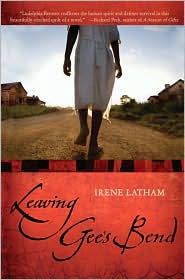
Leaving Gee's Bend. Irene Latham. 2010. Penguin. 240 pages.
Mama pulled a chicken egg from behind the azalea bush in our front yard and narrowed her eyes. "Ludelphia Bennett! You go back in there and get your eye patch."
Historical fiction. Set in Gee's Bend, Alabama. 1932.
Ludelphia's mother is dying, and there's nothing she can do about it. That's what everyone says. But Ludelphia isn't convinced. She thinks that if she can just get a doctor--a real doctor--to come and see her mother, there might be a chance. True, Ludelphia has never left Gee's Bend, has never been to Camden. But. If there's a chance that someone could help her--no matter how small--she's got to brave it. It's scary, no doubt about it, because it isn't easy to leave Gee's Bend. It requires a ferry. Which may not be a big deal...if you're not in a hurry, if the ferry man can be found, if there hasn't been a big storm upsetting the river, if you know exactly where you're going. Ludelphia will have to brave more than just the river...as she embarks on this journey. A journey that proves physically and emotionally demanding.
I liked this one.
© Becky Laney of Becky's Book Reviews
View Next 25 Posts





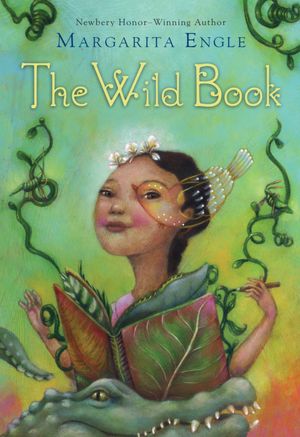


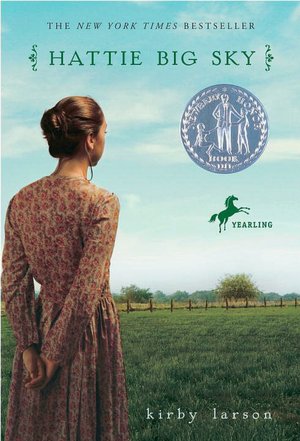
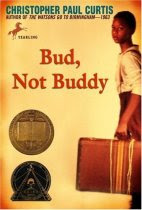
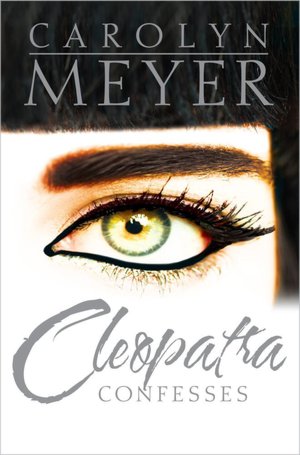


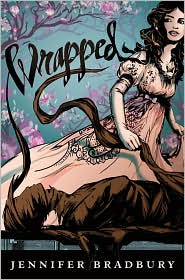

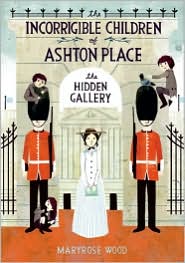

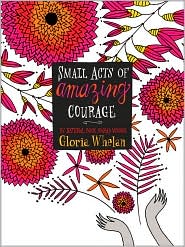

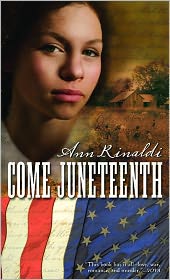

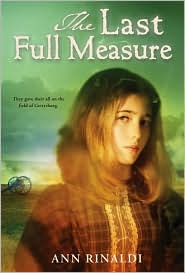
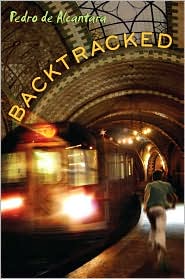


 Richie Perry wasn’t supposed to be in Vietnam. Yeah, he’d enlisted in the Army after graduating from high school because he couldn’t afford college and someone had to support his family, especially his younger brother, Ken. But an Army doctor said Richie had a bum knee, so he wasn’t fit for combat duty. And definitely not for duty in Vietnam.
Richie Perry wasn’t supposed to be in Vietnam. Yeah, he’d enlisted in the Army after graduating from high school because he couldn’t afford college and someone had to support his family, especially his younger brother, Ken. But an Army doctor said Richie had a bum knee, so he wasn’t fit for combat duty. And definitely not for duty in Vietnam.
I really have to read this book. I have owned it forever...
Great post! It's such a wonderful book, so heartbreaking but so wonderful. I'm actually re-reading this one and sharing it with my daughter. I wrote about that experience here if you're interested.
Hi Becky, My son read & loved this book, and after reading your post, I'm going to give it a try this summer. As a writer, the idea of Death as narrator interests me a great deal. I'm always looking for novel POVs in my stories.
Thanks!
I don't normally like books with a conceit (such as being narrated by Death!), but this one totally sucked me in and made me its own. So beautiful.
Hi there, Becky! I'm pretty sure that I have this book sitting somewhere on my shelves and this review has really put me in the mood to go find it and read it! I also wanted to say, and I wasn't sure where the right place to say it was, that I had a few suggestions of historical fictional books that you might be interested in. One of them is called "I Was Jane Austen's Best Friend" (which I have posted a review about on my blog - www.curiouser96.blogspot.co.uk )and the other is Called "Bright Young Things" and it is the first in a series. At some point I also hope to write a wee review on that. I've just started blogging so it would mean the world to me if you would check out my blog and leave any comments that you could make about my writing and reviewing. Sorry for bothering you with all of this.
All the best, I love your blog!x